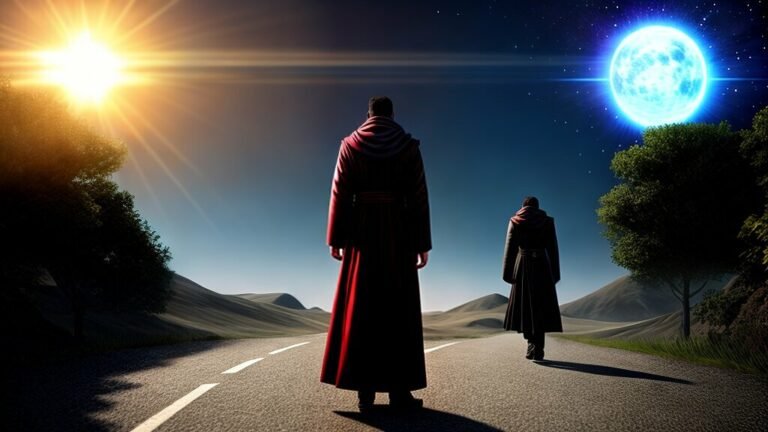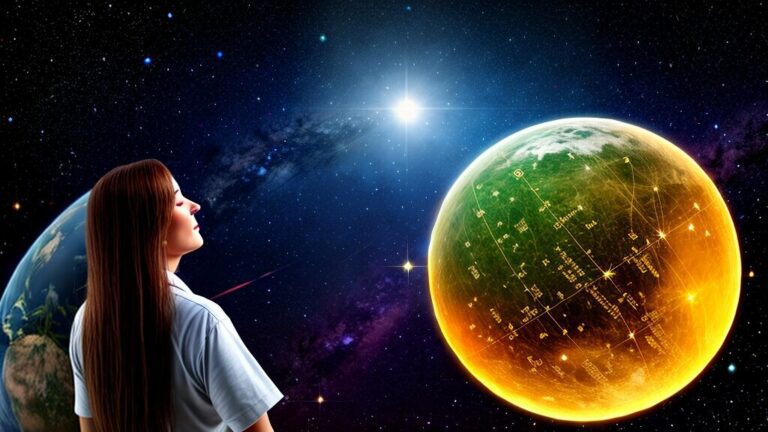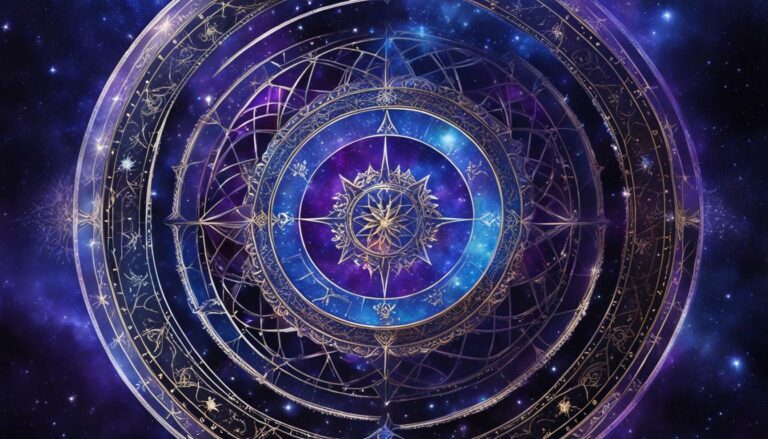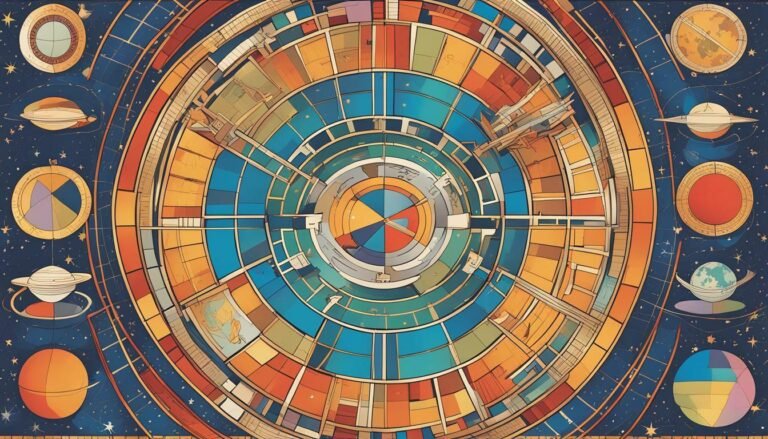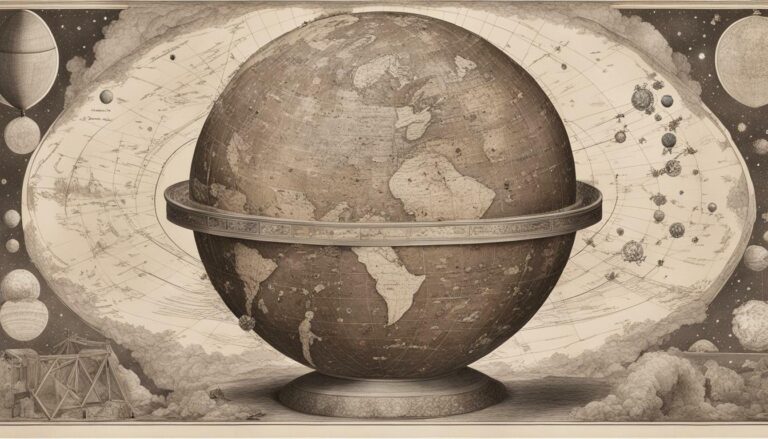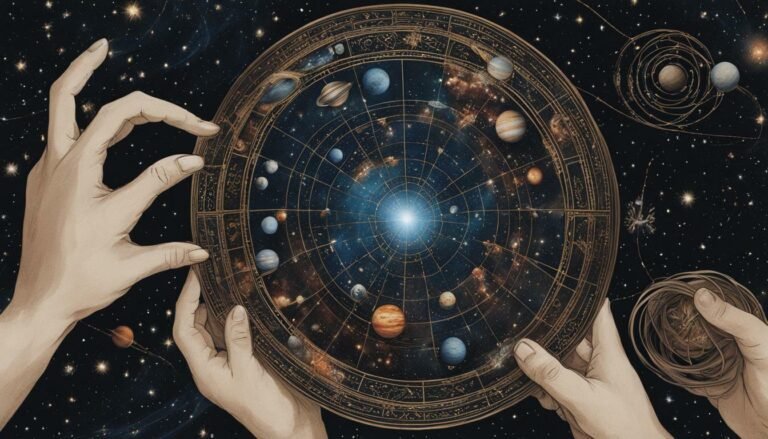Why is My Sun Sign Different in Vedic Astrology: Find Out Now!
If you’re familiar with Western astrology, you may know your sun sign based on the month and day you were born. However, in Vedic astrology, your sun sign could be different.
But why is that? Vedic astrology, originating in India, has its own system of zodiac signs and calculations that take into account the positions of the planets at the time of your birth.
If you’re curious about why your sun sign may differ in Vedic astrology, keep reading to find out.
Key Takeaways
- Vedic astrology uses its own system of zodiac signs and calculations
- The positions of the planets at the time of your birth play a significant role in Vedic astrology
- Your sun sign may differ in Vedic astrology due to these different calculations and interpretations of the zodiac
Understanding Vedic Astrology and Zodiac Signs
If you’re familiar with Western astrology, you may find Vedic astrology to be a bit different. While both systems use zodiac signs based on the placement of the sun at the time of your birth, Vedic astrology has a few unique features that set it apart.
Firstly, Vedic astrology uses sidereal zodiac signs, which are based on the fixed stars in the sky. This means that your Vedic sun sign could be different from your Western sun sign as it takes into account the 23.5-degree tilt of the Earth’s axis. Additionally, Vedic astrology places a strong emphasis on the moon sign, which is believed to be just as important as the sun sign in determining a person’s character and destiny.
Another key difference between Western and Vedic astrology is the use of planetary periods, known as dashas, which can offer insight into major life events and transitions. In Vedic astrology, each planet rules over a certain period of time in a person’s life, and understanding these dashas can help guide important decisions and actions.
How Zodiac Signs Work in Vedic Astrology
Zodiac signs in Vedic astrology are known as rasis, and there are 12 in total, just like in Western astrology. However, the dates associated with each sign may differ due to the use of sidereal astrology. Here are the Vedic zodiac signs and their corresponding Western dates:
| Vedic Rasi | Western Sign |
|---|---|
| Aries (Mesha) | April 14 – May 14 |
| Taurus (Vrishabha) | May 15 – June 14 |
| Gemini (Mithuna) | June 15 – July 14 |
| Cancer (Karka) | July 15 – August 14 |
| Leo (Simha) | August 15 – September 14 |
| Virgo (Kanya) | September 15 – October 14 |
| Libra (Tula) | October 15 – November 14 |
| Scorpio (Vrishchika) | November 15 – December 14 |
| Sagittarius (Dhanu) | December 15 – January 14 |
| Capricorn (Makara) | January 15 – February 14 |
| Aquarius (Kumbha) | February 15 – March 14 |
| Pisces (Meena) | March 15 – April 13 |
It’s important to note that Vedic astrology takes into account much more than just your sun sign. Your ascendant (rising sign), moon sign, and position of planets at the time of your birth all play a role in determining your overall astrological profile.
Differences Between Western and Vedic Astrology
If you are familiar with Western astrology, you may be surprised to discover that Vedic astrology operates under a different system entirely. Here are some key differences:
| Western Astrology | Vedic Astrology |
|---|---|
| Based on the tropical zodiac | Based on the sidereal zodiac |
| The sun sign determines your personality and future | The moon sign is considered equally important, if not more so, than the sun sign |
| Focuses on the individual | Focuses on the collective and the interconnectedness of all things |
One of the most significant differences between the two systems is the zodiac itself. Western astrology uses the tropical zodiac, which is based on the position of the sun relative to the earth’s orbit. In contrast, Vedic astrology uses the sidereal zodiac, which is based on the fixed stars. This means that the signs in Vedic astrology are actually shifted back by about 23 degrees, so your Vedic sun sign may be different from your Western one.
Another major difference is the emphasis on the moon sign in Vedic astrology. While the sun sign is still considered important, the moon sign is seen as equally significant, if not more so. This is because the moon represents the inner self and emotions, while the sun represents the outer self and ego. Vedic astrology also places a greater focus on the collective and the interconnectedness of all things, rather than just the individual.
Ultimately, the choice between Western and Vedic astrology comes down to personal preference and belief. It’s worth exploring both systems and seeing which one resonates with you more. By understanding the differences between them, you can gain a deeper insight into yourself and your place in the world.
Differences Between Western and Vedic Astrology
If you’re used to checking your horoscope in Western astrology, you may be surprised to learn that Vedic astrology has a different approach to calculating your sun sign.
One of the key differences is that Western astrology uses the tropical zodiac, which is based on the position of the sun relative to the Earth’s equator, while Vedic astrology uses the sidereal zodiac, which is based on the position of the sun relative to the fixed stars.
What this means is that Vedic astrology takes into account the precession of the Earth’s axis, which causes the positions of the constellations to shift over time. As a result, your sun sign in Vedic astrology may be different than your sun sign in Western astrology.
Another difference is that Vedic astrology places a strong emphasis on the moon’s position in the sky, as well as the positions of the other planets. In fact, Vedic astrology is sometimes called “Jyotish,” which means “science of light.” The position of the planets and stars are believed to have a significant impact on our lives and destinies.
If you’re curious about Vedic astrology and want to learn more, there are many resources available online and in books. Keep in mind that Vedic astrology is a complex system with many nuances, so it may take some time to fully grasp all of its intricacies.
What It Means for You and Unlocking the Secrets
So, what does all of this mean for you? Well, if you’re someone who follows astrology closely, exploring Vedic astrology may provide you with new insights and perspectives on your life and personality. You may discover that your Vedic sun sign resonates with you in ways that your Western sun sign does not.
However, it’s important to keep in mind that astrology, whether Western or Vedic, is not a science and should not be relied upon as a substitute for professional advice or guidance. While astrology can offer valuable insights and guidance, it’s important to approach it with an open mind and a healthy dose of skepticism.
Ultimately, the best way to unlock the secrets of astrology is to approach it with curiosity and an open mind. Whether you’re a die-hard astrology fan or a skeptic, there’s always something new to learn and discover about this ancient practice.
Conclusion
Now that you know the difference between Western and Vedic astrology, you can delve deeper into understanding your Vedic sun sign and what it means for you. By unlocking the secrets of your Vedic horoscope, you can gain insights into your personality traits, strengths, weaknesses, and potential challenges.
Remember that Vedic astrology is not meant to predict your future, but rather to guide you towards a better understanding of yourself and your life’s purpose. With this knowledge, you can make informed decisions and take actions that align with your true self.
So go ahead, explore your Vedic sun sign and embrace the unique qualities it brings to your life. Who knows, you may discover a whole new perspective on yourself and the world around you!
FAQ
Q: Why is my sun sign different in Vedic astrology?
A: Vedic astrology is based on a different calculation system than Western astrology. It takes into account the positions of the stars and planets at the time of your birth, which can result in a different sun sign.
Q: How can I understand Vedic astrology and zodiac signs?
A: Understanding Vedic astrology and zodiac signs requires studying the ancient texts and learning about the significance of each planetary placement in your birth chart. It is a complex system that takes time to grasp, but there are many resources available to help you learn.
Q: What are the differences between Western and Vedic astrology?
A: Western astrology is based on the tropical zodiac, which aligns with the seasons, while Vedic astrology uses the sidereal zodiac, which aligns with the fixed stars. Additionally, Vedic astrology places a greater emphasis on the moon sign and uses different planetary rulerships.
Q: What does it mean for me if my sun sign is different in Vedic astrology?
A: Having a different sun sign in Vedic astrology can provide you with a deeper understanding of your personality and life path. It may reveal different strengths, challenges, and opportunities that you can explore and work with to enhance your life.
Q: How can I unlock the secrets of Vedic astrology for my life?
A: To unlock the secrets of Vedic astrology, it is recommended to consult with a knowledgeable astrologer who can analyze your birth chart and provide insights specific to your life. Additionally, studying Vedic texts and learning about the different aspects of astrology can help you gain a deeper understanding.

